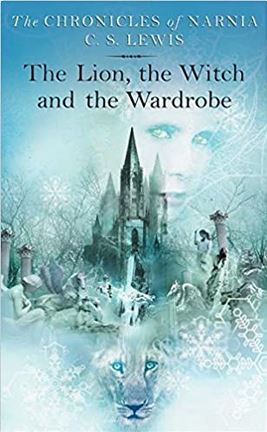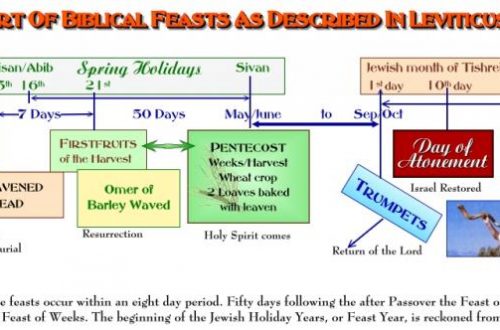
Book Review: The Lion, the Witch, and the Wardrobe
“They say Aslan is on the move—perhaps has already landed.”
______________
Children easily lose themselves in imaginary worlds. In the days before video games, we lost ourselves in worlds of cops and robbers, cowboys and Indians, little green army men, etc. My wife tells me she would get lost in worlds of dolls and Barbies. It’s sad that most of us seem to lose our imagination gift as we grow older. Perhaps we simply fail to continue the practice. (Plus, they frown upon playing cops and robbers at my bank.) But if I no longer can conjure my own imagination at will, then let me find a book into which I can immerse myself; give me a portal into another world. Sometimes we need an escape, an exit from our world, its craziness and anxieties, to a fantasy world dreamed up by a gifted dreamer.
Years ago, I asked my dad for five of the greatest Christian books of all time. One of the five books he gave me was Lewis’ Mere Christianity, which blew me away. I would list it in my top ten favorite books of all time. Within a year of my introduction to Lewis, I also read The Screwtape Letters and The Problem of Pain. I was hooked. To this day he remains my favorite author for both fiction and non-fiction. But I’d never read the Chronicles of Narnia books because, well, they were children’s books (or so I thought). When Disney made a movie of The Lion, the Witch, and the Wardrobe in 2005, that was the first time I ever immersed myself in book one. I watched the next two movies Disney released and, soon after, received the Focus on the Family Radio Theatre adaptations from Mom one Christmas. By then I had fallen in love with Narnia. And, yes, I finally did read them for myself, too. And now I want others to fall in love with C.S. Lewis and Narnia as well.
So, for those who don’t know, here we go:
The first book in the series, The Lion, the Witch, and the Wardrobe, takes place during World War II, during the Blitz, when London was being bombed by the Nazis and many children were sent away to the countryside and safer havens. Four siblings, Peter, Susan, Edmund, and Lucy Pevensie find themselves living in the big old mysterious country home of an odd old professor and his strict housekeeper, Mrs. Macready. Peter is the oldest, the one who feels most responsible for his siblings but he is also the most adventurous. Susan is the most cautious, the most parent-like (not a good thing in a “children’s novel”); she tends to be a wet blanket, the one most likely to ruin a good adventure. Edmund is the sibling with the chip on his shoulder who, without his parents around, resents being given direction by either of his older siblings. He is envious, ornery, sulky, nasty, and “beastly” to others. Lucy, the youngest, is still filled with child-like wonder and faith.
These children of London, kids from the city, cannot wait to explore the country. But, Drat! the English weather is rainy and dreary; so they must settle for indoor adventures and decide to explore the house. And what a house it is, filled with books and old furniture, back stairways, endless passages, and mysterious doors. It is perfect for Hide and Seek, etc.
In one of the rooms of this mysterious house, Lucy finds an old wardrobe (what some might call an armoire, and what my grandparents would have called a chifforobe) as she pushes through the fur coats, further in than seemed quite possible, she finds the temperature is getting colder and colder. Suddenly, she breaks free of the coats and finds herself in a snowy wood, near an oddly located lamp post, just as a faun (a half-human half goat-like creature) is passing by with an umbrella over his head and packages under his arm. She has mysteriously stumbled into the land of Narnia, an enchanted world where some animals talk and mythological creatures still exist.
From what I have read, this image of a lamppost in the middle of a winter wood and a faun holding packages and an umbrella, came to Lewis out of the blue and stuck with him. Eventually, he wrote this first book…
Yes, Lucy has “discovered” Narnia. But something is amiss in Narnia. It is under a curse of an endless winter. “Always winter and never Christmas” is what we are told. The land has fallen under the control of the White Witch; she has usurped the throne and calls herself the Queen of Narnia. She rules by magic and an iron fist. It is because of her, and the curse she brought with her, that Narnia was plunged into a hundred year winter. Many creatures of Narnia are now in league with her but there are still plenty of them who hate her and remain allegiant to the rightful king, Aslan, the great Lion, son of the Emperor-beyond-the-Sea. Aslan has been away for a long time, but the hope is that he will return one day soon and make things right.
Nasty Edward also stumbles into Narnia but he stumbles directly into the path of the Witch. She is not happy when he does not immediately recognize her as Queen. Who might he be that he would not know her? She invites him to join her and be warm in her sleigh. She produces warm drink and sugary treats while she plies him with questions. She seems very interested in the fact that he has three siblings and demands that he go back and bring them all with him to her upon his return. Edward does not like the idea of sharing his newfound benefactor with his brother and sisters, but the Queen promises that if he meets her request, she will fill his life with treats and, best of all, she will make him prince and one day King of Narnia (above and over his siblings of course). This appeals greatly to him and off he goes to fulfill his mission.
Suffice to say, Edmund will betray his siblings, Aslan will return, things will go sideways, and a battle of ages will be waged. I will leave the details for you to read.
Those with a keen eye and mind will understand the deeper implications of the story, the book is an allegory for the biblical, Christian worldview. Narnia is a picture of our once perfect and beautiful world fallen under a curse (Genesis 3, Romans 8:18-25). The White Witch represents Satan (2 Corinthians 4:4-5, Ephesians 2:2, John 12:31; 14:30; 16:11). Edmund is being tempted and falls; he turns betrayer. Aslan, is the rightful ruler, son of the Emperor; He is the Christ character (Genesis 49:10, Jeremiah 33:14-17, Luke 1:31-33) and the parallels will be hard to miss!
What a great story… and it parallels the story of reality in many ways.
I do want to share with you some of my favorite or the most famous lines from the book, however. So here goes, counting down my top ten:
10. “Peter held the door closed but did not shut it; for, of course, he remembered, as every sensible person does, that you should never shut yourself up in a wardrobe.”[1]
9. “[A] charge of lying against someone whom you have always found truthful is a very serious thing.”[2]
8. “Logic!” said the Professor half to himself. “Why don’t they teach logic at these schools? There are only three possibilities. Either your sister is telling lies, or she is mad, or she is telling the truth. You know she doesn’t tell lies and it is obvious that she is not mad. For the moment then and unless any further evidence turns up, we must assume that she is telling the truth.”[3]
7. The prophetic rhyme, the reason the appearance of the human children stirred the whole land of Narnia:
“When Adam’s flesh and Adam’s bone
Sits at Cair Paravel [the castle] in throne,
The evil time will be over and done.”[4]
6. “The White Witch? Who is she?”
“Why, it is she that has got all Narnia under her thumb, It’s she that makes it always winter. Always winter and never Christmas; think of that!”[5]
5. “And now, who has won? Fool, did you think by all this you would save the human traitor? Now I will kill you instead of him as our pact was and so the Deep Magic will be appeased. But when you are dead what will prevent me from killing him as well? And who will take him out of my hand then? Understand that you have given me Narnia forever, you have lost your own life and you have not saved his. In that knowledge, despair and die.”[6]
4. “Please—Aslan,” said Lucy, “can anything be done to save Edmund?”
“All shall be done,” said Aslan. “But it may be harder than you think.”[7]
3. The following is one of my very favorite sections; it describes the reaction of each of the four children the first time they ever hear the name Aslan mentioned:
“And now a very curious thing happened. None of the children knew who Aslan was any more than you do; but the moment the Beaver had spoken these words everyone felt quite different…. At the name of Aslan each one of the children felt something jump inside. Edmund felt a sensation of mysterious horror. Peter felt suddenly brave and adventurous. Susan felt as if some delicious smell or some delightful strain of music had just floated by her. And Lucy got the feeling you have when you wake up in the morning and realize that it is the beginning of the holidays or the beginning of summer.”[8]
2. “They say Aslan is on the move—perhaps has already landed.”[9]
1. “Is—he a man?” asked Lucy.
“Aslan a man!” said Mr. Beaver sternly. “Certainly not. I tell you he is the King of the wood and the son of the great Emperor-beyond-the-Sea. Don’t you know who is the King of Beasts? Aslan is a lion—the Lion, the great Lion.”
“Ooh!” said Susan, “I’d thought he was a man. Is he—quite safe? I shall feel rather nervous about meeting a lion.”
“That you will, dearie, and no mistake,” said Mrs. Beaver; “if there’s anyone who can appear before Aslan without their knees knocking, they’re either braver than most or just silly.”
“Then he isn’t safe?” said Lucy.
“Safe?” said Mr. Beaver; “don’t you hear what Mrs. Beaver tells you? Who said anything about safe? ‘Course he isn’t safe. But he’s good. He’s the King, I tell you.”[10]
Enjoy!
______________________________________________________________________________
To read my other Bible.org columns check out here: https://blogs.bible.org/author/stephen-j-drain/
[1] C.S. Lewis, The Lion, the Witch, and the Wardrobe, copyright renewed 1978 by C.S. Lewis Pte. Ltd., chapter five, page 53.
[2] Ibid, chapter five, page 48.
[3] Ibid.
[4] Ibid, chapter eight, page 81.
[5] Ibid, chapter two, page 19.
[6] Ibid, chapter fourteen, page 155.
[7] Ibid, chapter twelve, page 128-129.
[8] Ibid, chapter seven, pages 67-68.
[9] Ibid, chapter seven, page 67.
[10] Ibid, chapter eight, page 80.



